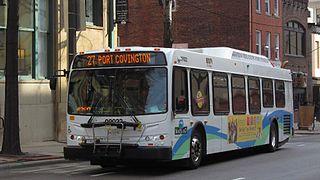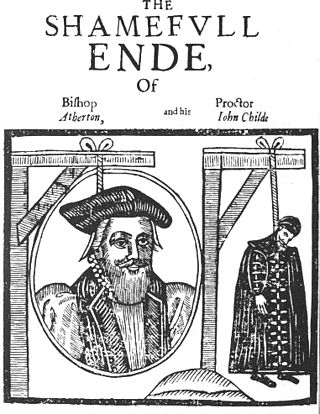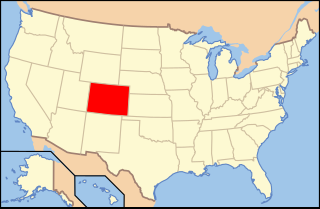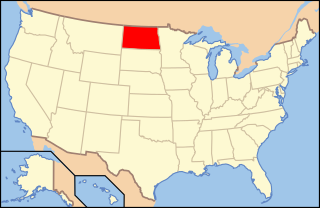| Beating of Chrissy Lee Polis | |
|---|---|
| Location | Rosedale, Maryland, U.S. |
| Coordinates | 39°20′20″N76°30′20″W / 39.338778°N 76.505543°W |
| Date | April 18, 2011 c. 8:00 p.m. EDT (UTC-05:00) |
Attack type | Beating, hate crime, violence against LGBT people |
| Victim | Chrissy Lee Polis |
| Perpetrators | Teonna Monae Brown and unnamed 14-year-old girl |
| Motive | Transphobia |
| Verdict | Pleaded guilty |
| Convictions | First-degree assault, hate crime |
| Filmed by | Vernon Hackett |
| Outcome | Hackett fired from McDonald's for being a bystander |
| Sentence | Brown: 5 years in prison, plus 5-year suspended sentence 14-year-old: Indefinite sentence in juvenile detention; mandatory release at age 21 |
Chrissy Lee Polis is a transgender woman who was beaten in an anti-transgender motivated hate crime on April 18, 2011, at a McDonald's in Rosedale, Maryland, just northeast of the city limits of Baltimore. A video of the beating was posted online and went viral. The attack had been conducted by teenage girls, aged 14 and 19. They were both prosecuted. The case heightened awareness of violence against transgender people in Maryland and protests were conducted.
A state law that had protections for transgender people failed to pass shortly before the attack. Gov. Martin O'Malley said he intended to work with the legislature on a bill to provide more protections for transgender people. In addition, Howard County passed a county law protecting transgender people within its boundaries.
Shortly before 8 p.m. on April 18, 2011, [1] two teenagers beat a transgender woman at a McDonald's in Rosedale, an unincorporated community in Baltimore County, Maryland, in Greater Baltimore. [2] The McDonald's, located at the 6300 block of Kenwood Avenue, ( 39°20′20″N76°30′20″W / 39.338778°N 76.505543°W ) [3] was in proximity to the Golden Ring Mall. [4]
The victim, Chrissy Lee Polis, was 22 at the time of the attack. [2] Polis, then a resident of Baltimore, [3] said that she was going to use a restroom, when a female individual spat in her face. Then she and another female person started attacking Polis. One of the attackers was 14 years old. A McDonald's employee, Vernon Hackett, filmed the beating and the attempts of another employee and a customer to intervene in the attack. [5] [2] Other McDonald's employees in the video are heard to be laughing. [6] Hackett was fired on April 23, after making transphobic remarks about Polis on Facebook. [4]
The beating lasted for several minutes. Weijia Jiang of CBS Baltimore said, "Then after a powerful blow to the head, the victim appears to have a violent seizure, and as she bleeds from the mouth, spectators warn the attackers to flee before cops arrive." [1] Polis said that she had been intoxicated during the attack, and that she had a seizure. [7] She received cuts to the face and mouth. Polis stated that she believed that being transgender was to blame for the assault. [3]
The three-minute video of the incident was posted online and became popular. Justin Fenton of The Baltimore Sun said that the video was "apparently" first posted on YouTube but was later taken down. [8] The same video later was posted to other websites, [8] including WorldStar HipHop. [9] On one website, the video received over 500,000 views by the early evening of April 22, 2012. [8]
The Drudge Report linked to the video and gave it a prominent status for much of the day it was posted. Fenton said "The video received widespread attention part because of the racial dynamics of the attack – the attackers were black, and the victim is white." [8] McDonald's issued a statement, saying that it fired the employee who had taped the incident. [2]
After the attack, a pro-transgender advocacy group, Equality Maryland, [8] asked the county officials to consider investigating the case to determine if it was a hate crime. [10] Scott D. Shellenberger, an attorney for the state of Maryland, said that hate crime charges may result from the attack; at the time he was not aware of the gender identity of the victim. [8]
On July 1, 2011, the 14-year-old admitted responsibility in the juvenile criminal system. The other attacker, 19-year-old Teonna Monae Brown, pleaded guilty to her role in the attack on Thursday August 4, 2011, [11] in the Baltimore County Circuit Court. [12] Brown pleaded guilty to one count of first degree assault and one count of a hate crime. [11]
Prosecutors sought to give Brown a 10-year sentence, with 5 of those years suspended. The maximum possible sentence for all of the crimes committed would have been 35 years. [11] Brown was given the sentence sought by prosecutors. [12] Some advocates for transgender people argued that the sentence was not severe enough. [13]
David Zurawick of The Baltimore Sun said that the posting of the video publicized "the vulnerability and lack of protection for transgendered citizens in Baltimore". [9]
The week after the attack, hundreds of people started a protest against the incident. Some organizations representing transgender people stated that they wished to use the incident to highlight violence against transgender people. [14] Shortly before the beating had occurred, a proposed Maryland law that would have added protections for transgender people failed to pass the legislature. The modified version that was passed did not have these protections. [15]
By November 2011 a bill to add protections for transgender people began circulating in the government of Howard County, Maryland. [15] On Monday, December 5, 2011, Howard County passed the protections for transgender people into county law. [12]
A hate crime is crime where a perpetrator targets a victim because of their physical appearance or perceived membership of a certain social group.

Violence against transgender people includes emotional, physical, sexual, or verbal violence targeted towards transgender people. The term has also been applied to hate speech directed at transgender people and at depictions of transgender people in the media that reinforce negative stereotypes about them. Trans and non-binary gender adolescents can experience bashing in the form of bullying and harassment. When compared to their cisgender peers, trans and non-binary gender youth are at increased risk for victimisation, which has been shown to increase their risk of substance abuse.
McDonald's attack may refer to:

Route 27 is a bus route operated by the Maryland Transit Administration in Baltimore. The line currently runs from the Reisterstown Plaza Metro Subway Station in northwest Baltimore to Port Covington in South Baltimore through downtown. The line also serves the communities of Pimlico, Mt. Washington, Cross Keys, Hampden, and Cherry Hill, and the Greyhound bus terminal. The bus route is the successor to the 10 Roland Park, 12 Westport, and 25 Mount Washington streetcar lines.

The Matthew Shepard and James Byrd Jr. Hate Crimes Prevention Act is a landmark United States federal law, passed on October 22, 2009, and signed into law by President Barack Obama on October 28, 2009, as a rider to the National Defense Authorization Act for 2010. Conceived as a response to the murders of Matthew Shepard and James Byrd Jr., both in 1998, the measure expands the 1969 United States federal hate-crime law to include crimes motivated by a victim's actual or perceived gender, sexual orientation, gender identity, or disability.

Samuel Isadore Rosenberg is an American politician who has served as a member of the Maryland House of Delegates representing northwest Baltimore since 1983. He is currently the longest serving member of the Maryland General Assembly.
Corrective rape, also called curative rape or homophobic rape, is a hate crime in which somebody is raped because of their perceived sexual orientation. The common intended consequence of the rape, as claimed by the perpetrator, is to turn the person heterosexual.

Angie Zapata was an American trans woman beaten to death in Greeley, Colorado. Her killer, Allen Andrade, was convicted of first-degree murder and committing a hate crime, because he murdered her after learning she was transgender. The case was the first in the nation to get a conviction for a hate crime involving a transgender victim, which occurred in 2009. Zapata's story and murder were featured on Univision's November 1, 2009 Aquí y Ahora television show.

The history of violence against LGBT people in the United Kingdom is made up of assaults on gay men, lesbians, bisexual, transgender, queer and intersex individuals (LGBTQI), legal responses to such violence, and hate crime statistics in the United Kingdom. Those targeted by such violence are perceived to violate heteronormative rules and religious beliefs and contravene perceived protocols of gender and sexual roles. People who are perceived to be LGBTQI may also be targeted.

The history of violence against LGBT people in the United States is made up of assaults on gay men, lesbians, bisexuals, and transgender individuals (LGBT), legal responses to such violence, and hate crime statistics in the United States of America. The people who are the targets of such violence are believed to violate heteronormative rules and they are also believed to contravene perceived protocols of gender and sexual roles. People who are perceived to be LGBT may also be targeted for violence. Violence can also occur between couples who are of the same sex, with statistics showing that violence among female same-sex couples is more common than it is among couples of the opposite sex, but male same-sex violence is less common.

Lesbian, gay, bisexual, and transgender (LGBT) people in the U.S. state of Colorado enjoy the same rights as non-LGBT people. Same-sex sexual activity has been legal in Colorado since 1972. Same-sex marriage has been recognized since October 2014, and the state enacted civil unions in 2013, which provide some of the rights and benefits of marriage. State law also prohibits discrimination on account of sexual orientation and gender identity in employment, housing and public accommodations and the use of conversion therapy on minors. In July 2020, Colorado became the 11th US state to abolish the gay panic defense.

Lesbian, gay, bisexual, and transgender (LGBT) persons in the U.S. state of North Dakota may face some legal challenges not experienced by non-LGBT residents. Same-sex sexual activity is legal in North Dakota, and same-sex couples and families headed by same-sex couples are eligible for all of the protections available to opposite-sex married couples; same-sex marriage has been legal since June 2015 as a result of Obergefell v. Hodges. State statutes do not address discrimination on account of sexual orientation or gender identity; however, the U.S. Supreme Court's ruling in Bostock v. Clayton County established that employment discrimination against LGBT people is illegal under federal law.

Lesbian, gay, bisexual, and transgender (LGBT) persons in the U.S. state of Alaska may face some legal challenges not experienced by non-LGBT Alaskans. Since 1980, same-sex sexual conduct has been allowed, and same-sex couples can marry since October 2014. The state offers few legal protections against discrimination on the basis of sexual orientation and gender identity, leaving LGBT people vulnerable to discrimination in housing and public accommodations; however, the U.S. Supreme Court's ruling in Bostock v. Clayton County established that employment discrimination against LGBT people is illegal under federal law. In addition, four Alaskan cities, Anchorage, Juneau, Sitka and Ketchikan, representing about 46% of the state population, have passed discrimination protections for housing and public accommodations.

Occupy Baltimore was a collaboration that included peaceful protests and demonstrations. Occupy Baltimore began on October 4, 2011, in Baltimore, Maryland, in McKeldin Square near the Inner Harbor area of Downtown Baltimore. It is one of the many Occupy movements around the United States and worldwide, inspired by Occupy Wall Street.

A tourist in Downtown Baltimore, Maryland was beaten, robbed, and stripped by several assailants on March 18, 2012, the day after Saint Patrick's Day and the celebrations that occurred. The video was posted online and went viral, and a negative internet response resulted. Four suspects were arrested and charged with acts related to the crime; all pleaded guilty and were sentenced by the criminal justice system.
In January 2017, four perpetrators: Jordan Hill, Tesfaye "Teefies" Cooper, and Brittany and Tanishia Covington committed a hate crime and other offenses against a mentally disabled man in Chicago, Illinois. The attackers, two men and two women, laughed as they kidnapped and physically, verbally, and racially abused the victim. The incident was livestreamed on Facebook.

This is a timeline of notable events in the history of the lesbian, gay, bisexual, and transgender community in the United States.

LGBT culture in Baltimore, Maryland is an important part of the culture of Baltimore, as well as being a focal point for the wider LGBT community in the Baltimore metropolitan area. Mount Vernon, known as Baltimore's gay village, is the central hub of the city's lesbian, gay, bisexual, and transgender communities.